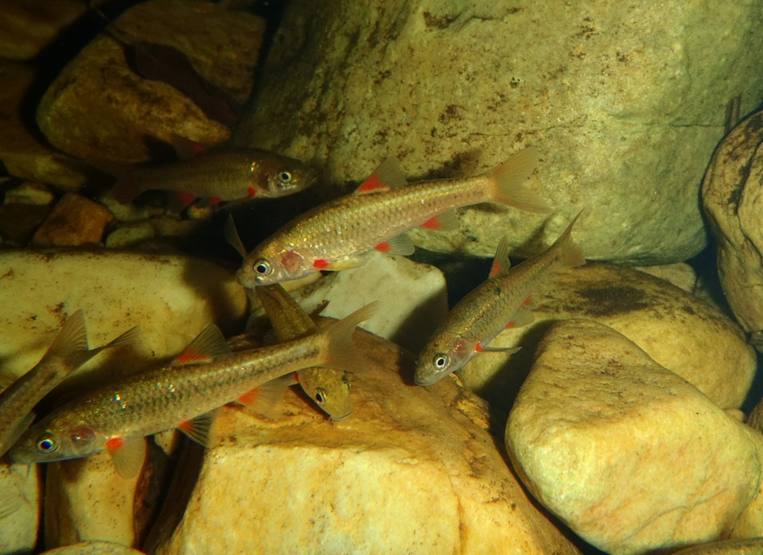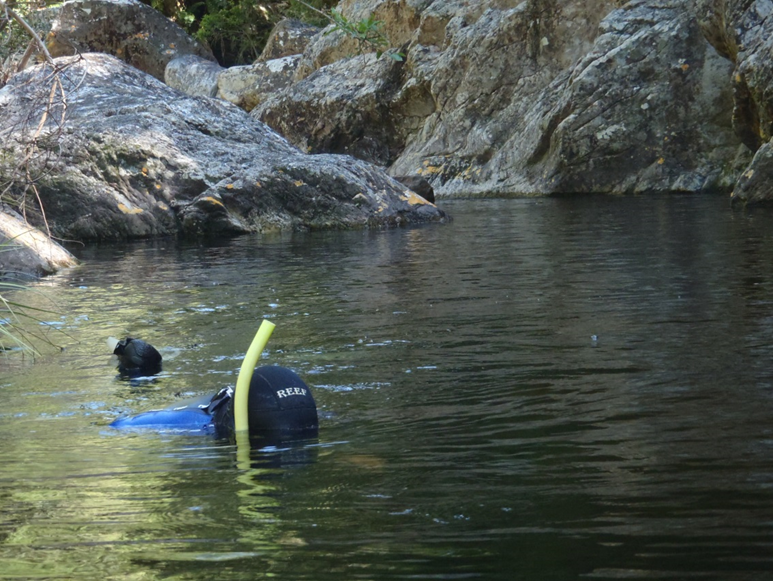Human impacts such as pollution, habitat degradation and invasive alien species threaten freshwater fishes, and as a result of these impacts, fishes in headwater streams are often cut off from larger populations in the river. While there is sufficient information on the effects of human impacts on fish populations, information on the impacts of natural disturbances (e.g. floods) on isolated fish populations is limited.
A recent flood of the Swartkops River gave C·I·B post-doctoral fellow, Bruce Ellender, the ideal opportunity to explore how isolated populations of native Eastern Cape redfin minnows (Pseudobarbus afer) in headwaters respond to natural disturbances.

The study found Eastern Cape redfin minnows to be highly resilient to the flood as there were no changes in their abundance, distribution or size structuring in the sampled streams. “This ability to withstand the flooding event was most likely because of their evolution in highly unpredictable stochastic environments.” explains Bruce, who is based at the South African Institute for Aquatic Biodiversity (SAIAB), in Grahamstown.
The high flow levels during the flood, however, lead to another predatory fish, the African sharptooth catfish (Clarias gariepinus) invading the Waterkloof stream, where it was absent before the flood. During the same flood on another tributary, the Blindekloof stream, African sharptooth catfish increased their range by 5km and entered previously non-invaded areas that gave refuge to Eastern Cape redfins.
“This research tells us how native fish in headwater streams react to natural disturbances and their ability to withstand natural disturbances, information that is essential if we want to conserve them.” says Bruce. He adds that “While the persistence of Eastern Cape redfins in isolated refugia was not impacted by a flood of this magnitude, the continuing threat of invasions by alien fishes from areas downstream remains a serious cause for concern.”
Read the papers
For more information, contact Bruce Ellender at bru.ellender@gmail.com

